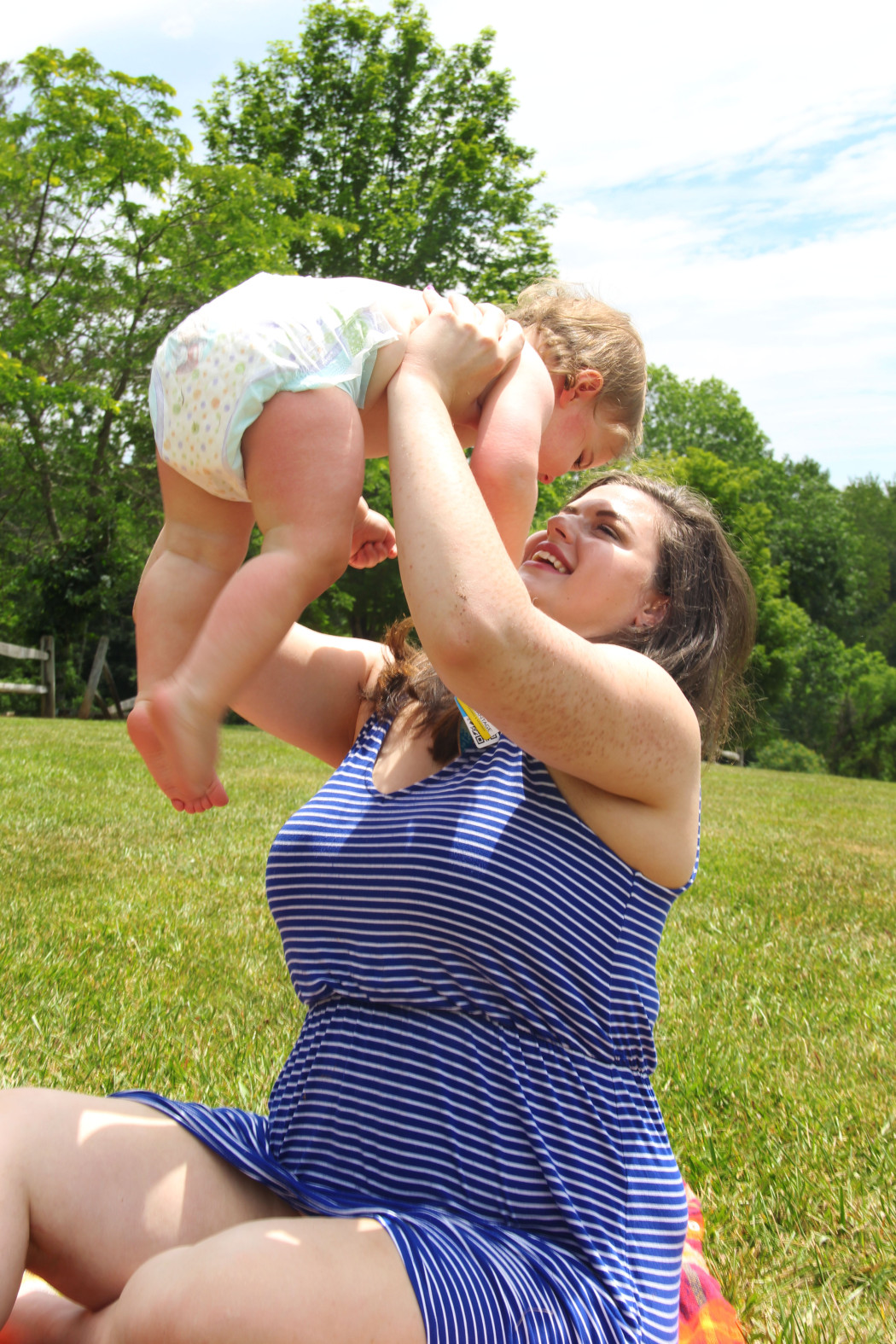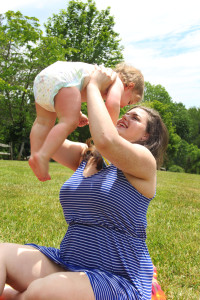By Emily Hagstrom, Women Advance NC Intern
I’m a twenty year old college student. I over-schedule my time, and I pull all-nighters; I eat when I can, and I sleep when I remember to. I pride myself on my fierce independence–I’m hardly responsible for taking care of myself, let alone other people.
So you can imagine that the reality of motherhood feels pretty far away from me right about now. But plot twist—life doesn’t work this way for all twenty year old women. My friend Ali Cole had her sweet baby Atticus last year, and she’s been opening my eyes and ears to the world of being a young mom.
An honors student, Cole had been planning to go to college when she learned she was pregnant. At the same time, Cole’s mother and step-father were going through a divorce. A series of life-changing events came at her all at once, and they not only changed the structure of Cole’s family life, but also drastically altered her financial status. Her step-father made most of the family’s money, and with his income no longer contributing to the household, Cole went from being part of an upper-middle class family to needing government assistance in the course of a year.
So as a single mom navigating a brand new financial landscape, Cole had baby Atticus—and the experience of motherhood hasn’t been easy. She worries about making sure the two of them have everything they need. “To be honest, there are times when I wish I would have given Atticus up for adoption because I feel like I can’t take care of him financially,” she confessed.
One thing that really contributed to this financial unrest was how long it took Cole to get a job after her pregnancy. Though Cole started looking into the possibilities of work a couple weeks after Atticus’ birth, she was only recently hired at a local department store. This is due to the fact that there was one major obstacle that held her back from re-entering the workforce: She needed childcare.
Childcare in North Carolina is not at all what you would call accessible. “It’s really expensive, and a lot of places don’t have opening,” Cole explained. Even government funded programs are difficult for moms like her to navigate. “The thing about the daycare voucher is you have to be working 30 hours or more a week to even get on the waiting list, and it’s kind of a Catch-22, because it’s like I have to be working 30 hours or more to get childcare so I can be working 30 hours or more.”
The average cost of childcare in North Carolina is >>$8,868 . On top of diapers, food, clothes, and other necessities, that’s a huge expense. There are state subsidized childcare programs for some parents who can’t afford that cost, but not all needy families fit the criteria for >> eligibility . Further, there aren’t enough state resources for kids whose parents do qualify for the program. Statewide, over >>20,000 eligible kids are on waiting lists for subsidized child care. Even if cost weren’t enough of a barrier, Cole couldn’t find a single certified child care program with an opening or even an available spot on the waitlist in her area.
So when she finally found an affordable home daycare, Cole was thrilled. She was finally able to commit to her job search. With her new job, financial stability is within Cole’s reach. Her goal is to eventually make enough money to go to school and become a nurse and get her own place.
As the North Carolina budget is being debated, it’s important to note that legislators are not considering expanding the childcare subsidy program, even though over 20,000 kids remain on the waitlist. They have also made little effort to make >> higher education more affordable and have not allocated adequate funds to >> public schools to pay for basic classroom resources, like updated >> textbooks . Yet, the President Pro Tempore of the state Senate says there’s “ >>extra money ” in the budget—money that is being set aside instead of solving the real problems facing North Carolinians today.
Now, for college students like me, it might seem like we don’t need to worry about affordable daycares and good public schools. After all, having kids of our own feels like it’s eons away. But a lot of us do intend to have kids at some point—I know I do. And when that time comes, I want to know that I can afford to have a child; I want to know that I won’t feel forced to leave the workforce like many parents before me as childcare >>becomes more and more inaccessible . After watching Cole’s experience with trying to find childcare, I don’t know how comfortable I’d be with having a child in North Carolina any time in the near future. Consider it yourself; you might find these issues are a little more pressing than you originally thought.


There are no comments
Add yours